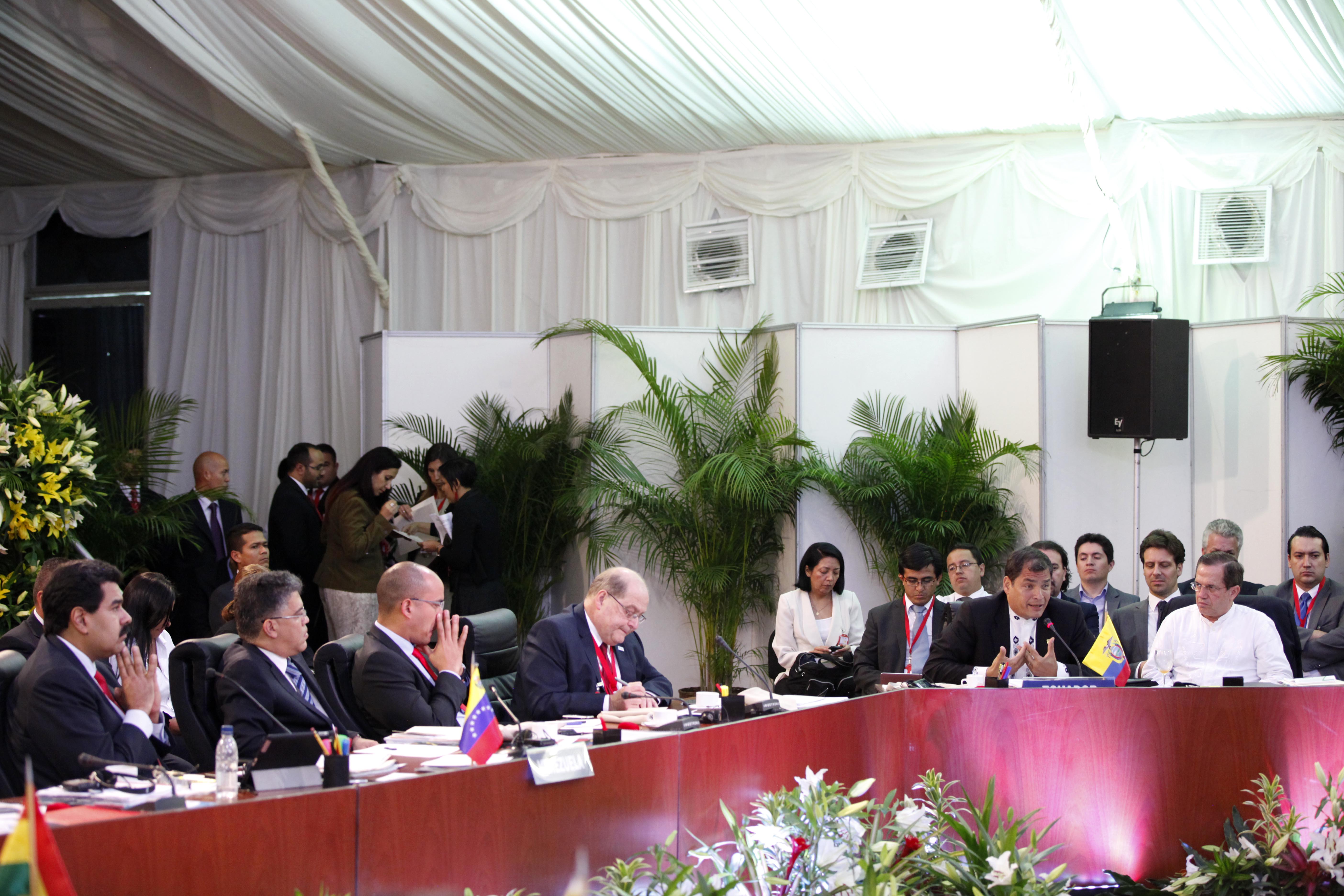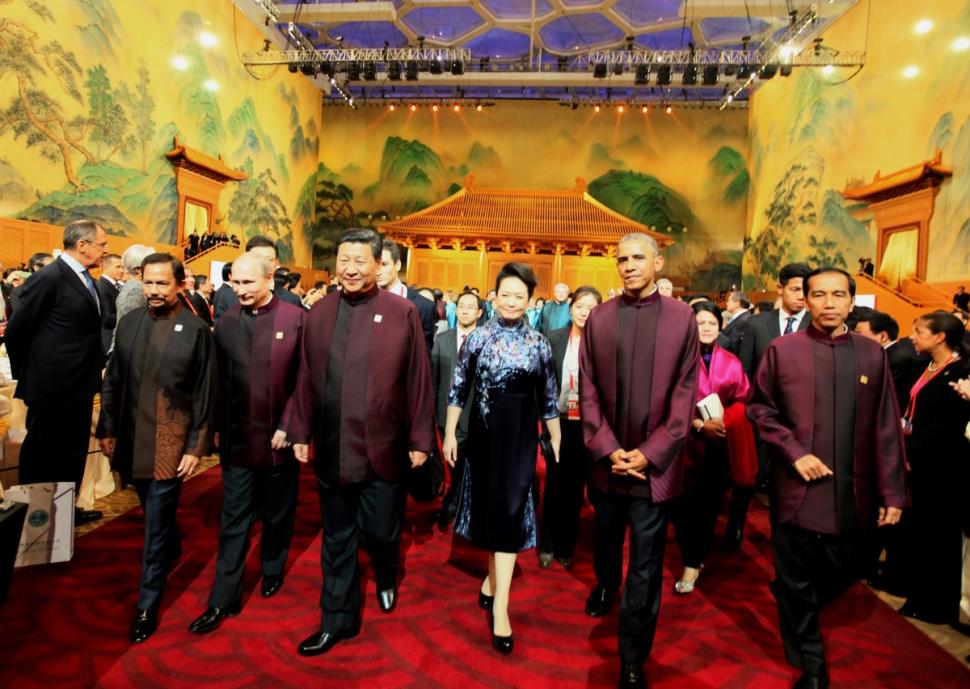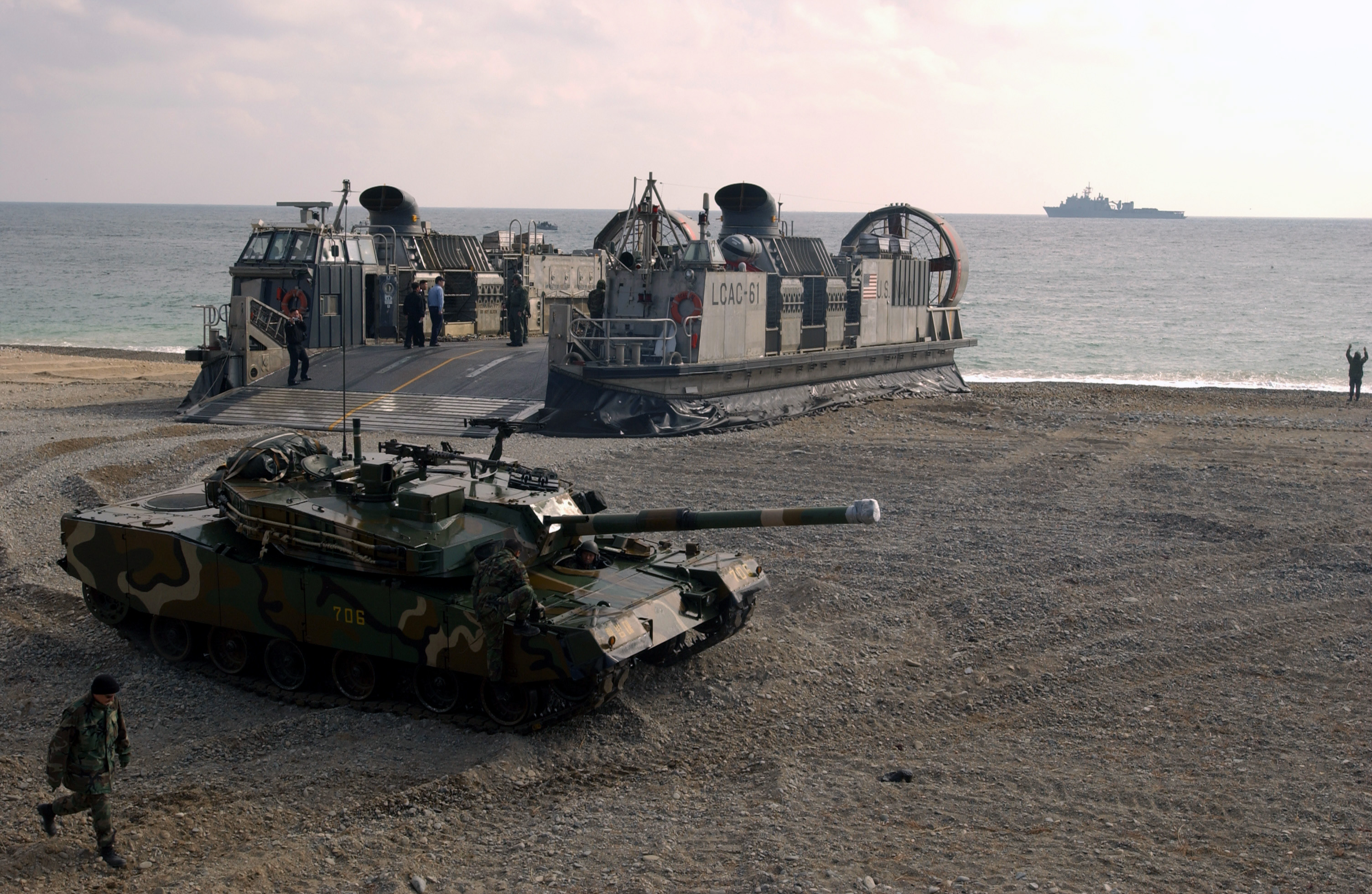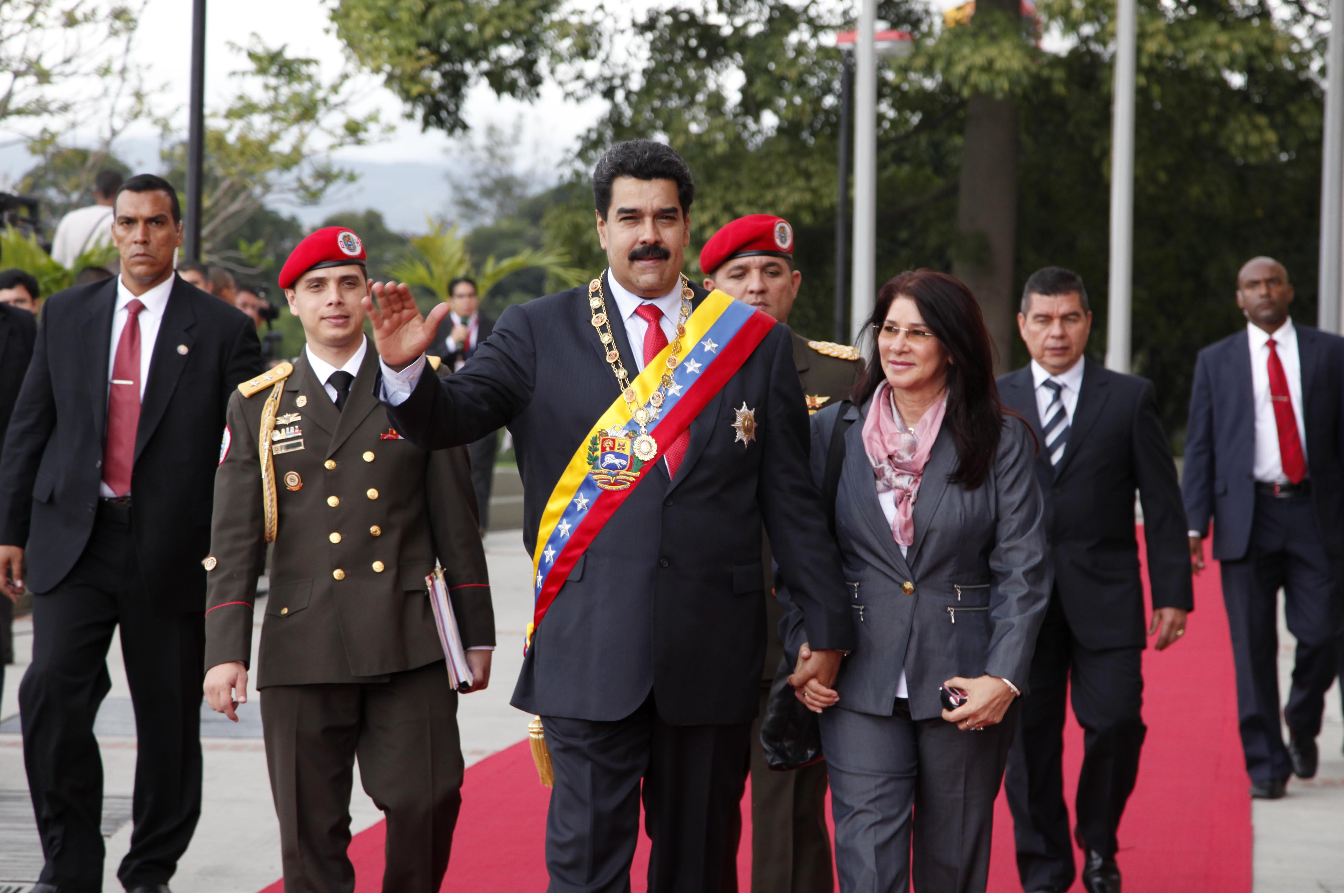This is the second article in a two-part series on energy politics in Latin America and the Caribbean. Click here to read Part I
The Petrocaribe program, headed by Venezuela and linked to seventeen Latin American and Caribbean states, has been delivering crude oil in exchange for preferential credit terms since 2005. This alliance, which includes Jamaica, Nicaragua and Honduras, among others, has freed up money for spending and investment that would have been otherwise spent on (often crippling) energy costs. It has also resulted in substantial debt, vulnerability to external shocks, and an underdeveloped energy sector in a region that has become heavily dependent on Venezuelan oil.
These consequences, together with sharply diminished oil prices in 2015 and a bleak outlook for future prices, have further increased the vulnerability and risk for the economies of Petrocaribe countries. As Venezuela continues to cope with a struggling economy, and threats of political instability and a coup d’état loom over President Maduro’s head, Petrocaribe has begun to look more and more unsustainable. The oil alliance is “drying out,” according to Peter Schechter, director of the Adrienna Arsht Latin America Center at the Atlantic Council of the United States.
The growing threat of energy insecurity throughout the Caribbean and Latin America has raised questions over the future of the region if it is left without Petrocaribe’s benefaction. Indeed, Peter Schechter, director of Atlantic Council Adrienne Arsht Latin America Center, has called for an “energy paradigm shift”, something necessitated by “both economic and environmental security concerns – not least of which is Venezuela’s tightening of the terms of Petrocaribe membership.”
Further, a new World Bank report has indicated that the region’s reliance on oil imports has severely hampered the countries’ economic development. According to the report, the region’s trade performance is limited by lack of diversity and limited innovation, necessitating continued efforts to improve trade facilitation and invest in research and innovation. “Exporting firms remain affected by the limited access to electricity, telecommunication and transport services, and the need for policies to further promote technology capability and innovation,” it goes on, concluding that “more efforts are needed to improve skills and access to infrastructure and finance.”
I argue that this is an important opportunity for Canada to show leadership in the international community and foster alternative markets for its energy exports. There is no hiding that Canada has much to work on in the international theatre. At the recent Pacific Finance and Trade Summit in Vancouver, panellists called Canada “very timid”, arguing that “policy and business leaders need to push the ‘Canada Brand’ more aggressively abroad to make up the gap.” Elsewhere, analysts have painted a picture of “a Canadian economy that is failing to live up to its trade potential.” Until recently, Canada was in free trade negotiations with several countries, including CARICOM, the Caribbean free trade area – but many of the talks have since stalled, including those with CARICOM.
Canada, with security, climate, and economic interests in the stability and prosperity of the Caribbean and Central America, is thus in the unique position of having the opportunity and resources to help avert an energy crisis in the region and help grow a market for its energy exports. Its reputation in the area already suffers because of the region’s ties with Venezuela, a country whose media has recently accused Canada of being part of a plot to overthrow the Maduro government. Alternate energy markets are also important given Canada’s current economic relationship with the US, which in recent years has been complicated by repeated trade disputes and Canadian concerns for the future of energy exports.
With the current Venezuelan regime tightening restrictions on Petrocaribe, indicating that the partnership may have its days numbered, Canada must determine whether it has adequate foreign policy interests in the region and, if so, how to take action.
Weaning the Petrocaribe nations off of fuel oil and diesel for power generation will be a multi-step process, as other countries have been demonstrating. Since a transition to renewable energy is not a feasible short-term solution, analysts have recommended transitioning to natural gas, using that phase to build on existing infrastructure and make way for the eventual move to renewables. In an IDB Pre-Feasibility Study on introducing natural gas into thirteen Caribbean economies, it was determined that replacing liquid fuels with natural gas, in combination with energy efficiency and renewable energy measures, would produce net benefits to every country. A growing market for natural gas in the Caribbean is an obvious benefit to Canada, whose current exports of natural gas to the US are at their lowest since 1995, in part because of the latter’s recent shale gas boom.
It is thus in Canada’s interest to assist in the region’s energy development, by taking part in conceiving, financing, and helping supply new energy infrastructure, potentially working with international financial institutions to do so. Model projects have already appeared in the area, including a 34-megawatt wind project in Jamaica financed by the United States’ Overseas Private Investment Corporation. Canada should work to finance similar projects, as well as focusing on the need for port infrastructure to import liquefied natural gas which is currently lacking in the region. Moreover, Canada should resume negotiations with CARICOM, fostering a new and improved free trade agreement.
In a recent op-ed in the Globe and Mail, Alan Bernstein, Dan Trefler and Ted Sargent commented that “our country is already on the sidelines as Washington decides whether we can participate in world markets to sell our oil and gas.” Calling for increased research and innovation in clean, renewable energy, the authors cautioned that “unless we move boldly, we risk being shut out of the growing market for renewable energy.” This is just the opportunity to “move boldly” that Canada needs.
In sum, transitioning to natural gas and then to renewables would provide a “safety net” for the region in case Petrocaribe falls apart, while serving to further Canadian security and economic interests in the area. Canadian leadership on the issue could aid the region’s development, foster cleaner energy sources, reduce electricity costs, lessen the influence of Venezuela, and help Canadian exports.




